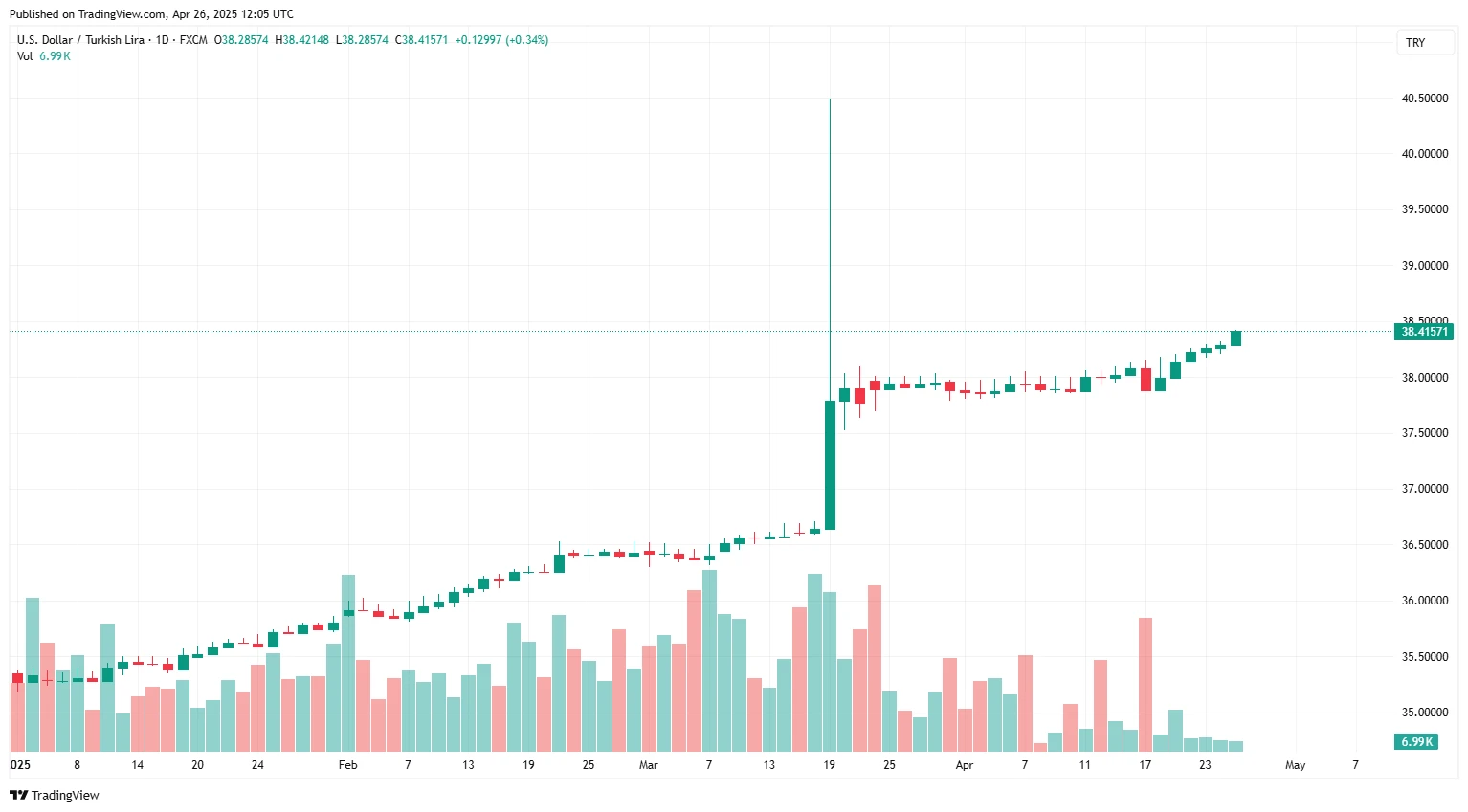Slumping oil prices spark leap opportunity for energy importer Türkiye: Analysts
 A view of Tupras' petroleum refinery, Türkiye’s largest, located in Izmit, Kocaeli, accessed on April 26, 2025. (Adobe Stock Photo)
A view of Tupras' petroleum refinery, Türkiye’s largest, located in Izmit, Kocaeli, accessed on April 26, 2025. (Adobe Stock Photo)
Oil prices, which have plunged by over 10% amid escalating trade tensions following the announcement of U.S. President Donald Trump’s tariffs on April 2, could present a significant advantage for energy-importing countries such as Türkiye, according to analysts specializing in the energy sector.
Trump’s sweeping 10% tariffs on imports from 185 countries pushed oil prices to their lowest levels since the Covid-19 pandemic, intensifying concerns about a potential global recession.
Brent crude fell to $58.22 per barrel on April 9 following retaliatory measures by China, but rebounded to $65.47 later the same day after the United States announced a temporary 90-day suspension of additional tariffs for countries other than China.
In the following week, Brent crude prices rose by 4.2% to $66.96 due to supply concerns related to Iran, but subsequently slipped by 1.6% to $65.87 as optimism over Iran negotiations grew and U.S.-China trade tensions persisted.
Since April 2, Brent crude has recorded a cumulative decline of 10.5%, while West Texas Intermediate (WTI) crude has dropped by 10.7%.

‘Declining oil prices could ease Türkiye’s energy bill’
Fereydoun Barkeshli, president of the Vienna Energy Research Institute, stated in an interview with Anadolu Agency that the sharp decline in oil prices presents an important opportunity for net energy-importing countries such as Türkiye.
According to official figures from Türkiye’s Trade Ministry, energy imports constitute a significant portion of the country’s trade deficit.
In March, when energy data was excluded, the ratio of exports to imports rose by 3.5 percentage points to 89.1%. However, when energy imports were included, this ratio dropped to 76.3%.
Turkish Finance Minister Mehmet Simsek has also repeatedly emphasized that lower energy prices could contribute to easing the burden of the current account deficit.
“The decline in oil prices could ease Türkiye’s energy bill. However, the potential global economic slowdown triggered by Trump’s tariffs might negatively affect the country’s growth prospects,” Barkeshli added.
He also indicated that the trade war initiated by Trump with China signals a shift toward a new global economic order.
While noting that Türkiye remains “relatively safe,” under the current conditions, Barkeshli emphasized, “In the long term, regional economic cooperation will gain importance. We may see initiatives such as the establishment of new free trade zones in Eurasia, a shift away from the U.S. dollar, and the development of regional currency mechanisms.”
Dollar weakness emerges as another cost-reducing factor
Homayoun Falakshahi, senior oil analyst at international data analytics firm Kpler, explained that the price declines are largely driven by slowing global growth expectations.
“We have revised our growth forecast for the United States from 2% down to 0.8%. Consequently, we lowered our 12-month average Brent crude price forecast from $71 per barrel to $66,” he stated.
Falakshahi pointed out that Türkiye has imported an average of 58,000 barrels of crude oil per day since the beginning of the year.
“The decline in oil prices is reducing the overall energy costs for countries like Türkiye. Additionally, the weakening of the U.S. dollar globally is another factor that lowers costs. However, the depreciation of the Turkish lira against the dollar significantly offsets this exchange rate advantage,” he said.
The U.S. dollar has gained more than 8% against the Turkish lira year-to-date, closing Friday’s session at 38.4157.

Highlighting that the trade deficit between the United States and Türkiye rose by 62.7% year-on-year to approximately $1.5 billion in 2024, Falakshahi stated that Trump’s 90-day suspension of additional tariffs could provide an opportunity for renegotiating new trade terms between the two countries.
Trump tariffs weigh heavily on global oil demand
Falakshahi also noted that the slowdown in global economic growth because of Trump’s tariffs continues to weaken demand for petroleum products.
“We have revised our petroleum demand growth forecast down from 750,000 barrels per day to 500,000 barrels per day. This revision is largely because of a decrease in diesel and naphtha consumption in both the United States and China,” he explained.
He warned that if oil prices remain at current levels, shale oil production in the United States could come under pressure.
“The minimum crude oil price needed for new oil wells to become profitable is around $65 per barrel based on WTI. Although a sharp decline in production is not expected in the short term, if prices hover around $60, we could see a decrease of about 300,000 barrels per day by the end of the year,” Falakshahi said.
He added that if prices fall to $55, daily production losses could reach 600,000 barrels.
“In the short term, it would be too costly to halt drilling activities altogether. The real impact would be felt two to three months later in drilling plans and would only be reflected in production figures five to six months thereafter,” he concluded.



